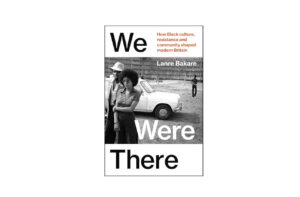Winning the Boston Marathon is already one of the most prestigious achievements in distance running. Doing it in record-breaking time? That’s rare air.
On April 21, 2025, Sharon Lokedi etched her name into the history of one of the most storied races in the world—not just by crossing the finish line first, but by obliterating a course record that had stood for over a decade. Her time of 2:17:22 didn’t just win the women’s division—it redefined what’s possible on Boston’s brutal terrain.
And for that feat, she’ll take home more than just glory. Lokedi earned $150,000 for the win, plus an additional $50,000 bonus for setting a new course record, according to Front Office Sports.
But what Lokedi achieved in Boston is about more than money or records. It’s about a legacy in motion, the evolution of women’s marathon running, and the undeniable dominance of East African athletes on the global stage.
A Win 10 Years in the Making
To understand the weight of Lokedi’s performance, we need to rewind to 2014, when Buzunesh Deba set the women’s course record with a time of 2:19:59. That day was legendary. Deba, an Ethiopian runner known for her aggressive pacing, ran what was widely considered a near-perfect race.
For years, no one touched that time. Boston’s course isn’t designed for fast finishes—its hills, unpredictable weather, and winding roads make it one of the hardest in the world. That’s why Lokedi’s 2:17:22 is so staggering. She didn’t just shave off a few seconds. She beat Deba’s mark by over two and a half minutes.
This wasn’t a tactical race. It was a statement.
From Kenya to Kansas—and Now Boston
Lokedi’s journey to marathon greatness isn’t typical. Born in Kenya, she moved to the United States to attend the University of Kansas, where she ran collegiately and built a reputation as a disciplined, mentally tough competitor. Her rise wasn’t flashy—there were no viral wins or explosive debuts.
But in 2022, she shocked the world by winning the New York City Marathon in her very first attempt at the 26.2-mile distance. That race, one of the most grueling on the World Marathon Majors circuit, introduced her as a serious contender. And it confirmed what those in elite running circles already knew: Lokedi wasn’t just talented. She was built for the long game.
Since then, she’s trained and lived in the U.S., continuing to represent Kenya internationally while building her career stateside. This blend of backgrounds gives her a unique perspective—and a growing fanbase in two countries that take running very seriously.
Boston: More Than Just a Race
The Boston Marathon, first run in 1897, is more than an athletic event. It’s a cultural ritual. It’s a holiday in Massachusetts. It’s woven into the fabric of the city. It has also been the site of historic triumphs, emotional comebacks, and heartbreaking tragedies.
Boston’s course is as mentally punishing as it is physically demanding. It begins with deceptive downhill stretches before introducing a series of hills in Newton, capped by the infamous Heartbreak Hill at mile 20. By the time runners hit the final few miles into Boylston Street, the race has already broken many contenders.
For Lokedi to not only survive the course but dominate it—to take it apart and rewrite the record books—is something only the greats can do.
A Historic Day for John Korir, Too
The women’s race wasn’t the only story. John Korir, another Kenyan athlete, won the men’s race in 2:04:44—the second-fastest time ever recorded on the Boston course.
His win also marked a bit of poetic symmetry: John is the younger brother of Wesley Korir, the 2012 Boston Marathon champion. It’s the first time in Boston history that siblings have both claimed victories in the iconic race.
That’s not just rare. It’s historic.
John’s performance, like Lokedi’s, underscores the continued dominance of Kenyan runners in global distance events. For decades, Kenyan and Ethiopian athletes have shaped the identity of modern marathon running. But now, runners like Lokedi and Korir are writing new chapters, blending heritage with next-gen performance and training science.
Prize Money and the Business of Running
Elite distance running is a hard sport to monetize. Unlike basketball or football, there are no team contracts, no season tickets, no merchandise drops. Your money comes from races, sponsorships, and bonuses—and even then, only the top tier makes a living.
That’s why wins like Lokedi’s matter so much. $200,000 in a single day is a huge payout in marathon terms. It rewards years of training, sacrifice, and patience. It also increases her value as a brand ambassador and role model in a sport that’s still fighting for visibility, especially on the women’s side.
Sponsors notice winners. They notice records. They notice consistency. For Lokedi, this win could mean bigger endorsements, more race invites, and the chance to build a global profile.
The Evolution of Women’s Marathon Running
Lokedi’s performance is also part of a larger trend: the rapid improvement of women’s marathon times.
In the last five years, women have begun to close the gap in what was once considered a static event. Training methods have evolved. Shoe technology has improved. Recovery science has become more precise. And women are racing smarter and harder than ever before.
In 2019, Brigid Kosgei shocked the world with a 2:14:04 world record in Chicago. Since then, sub-2:20 times have become more common among elite women. But doing it on Boston’s course? That’s something else entirely.
Lokedi’s 2:17:22 is now the new gold standard for Boston. And it will likely stand as one of the most impressive performances of the year across all marathon events.
Representation and Role Models
It’s easy to talk about times and splits. But what’s often overlooked is what Lokedi’s win means symbolically—especially for young girls, African athletes, and collegiate runners hoping to break into the pro scene.
Lokedi’s path was not fast-tracked. She didn’t burst onto the scene at 18 with a Nike deal. She worked her way up. She stayed in school. She trained quietly. She built her resume one race at a time.
Now she’s a record-holder in the most iconic marathon in America. That narrative matters.
It tells young runners that there isn’t just one way to reach the top. And it reminds fans that behind every victory are years of invisible work.
What’s Next for Lokedi?
With Boston behind her, Lokedi now becomes a major contender in any race she enters. She’ll have choices: London, Berlin, Chicago, Tokyo. All of them offer faster courses and deeper prize pools. But she could also choose to defend her New York title, creating a trilogy of major wins in the U.S.
Then there’s the Olympics in Paris next year. With this performance, Lokedi just became a top candidate for the Kenyan national team, a roster that’s notoriously competitive and stacked with talent.
If she earns that spot, she won’t just be running for herself. She’ll be running for history.
Final Thoughts: The Meaning of a Moment
In a sport that’s all about seconds, Sharon Lokedi’s 2:17:22 feels timeless. It wasn’t just a win. It was a redefinition. A rewriting. A reminder that greatness doesn’t always come loudly—but when it shows up, it leaves no doubt.
Boston will remember this race. Lokedi made sure of that.
No comments yet.








